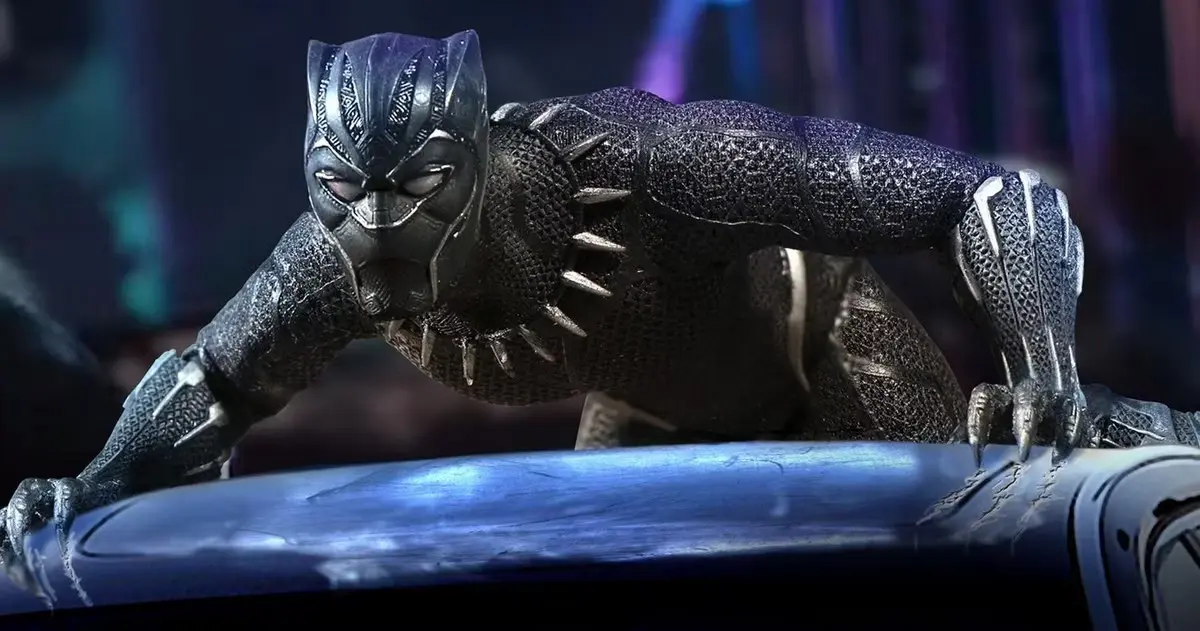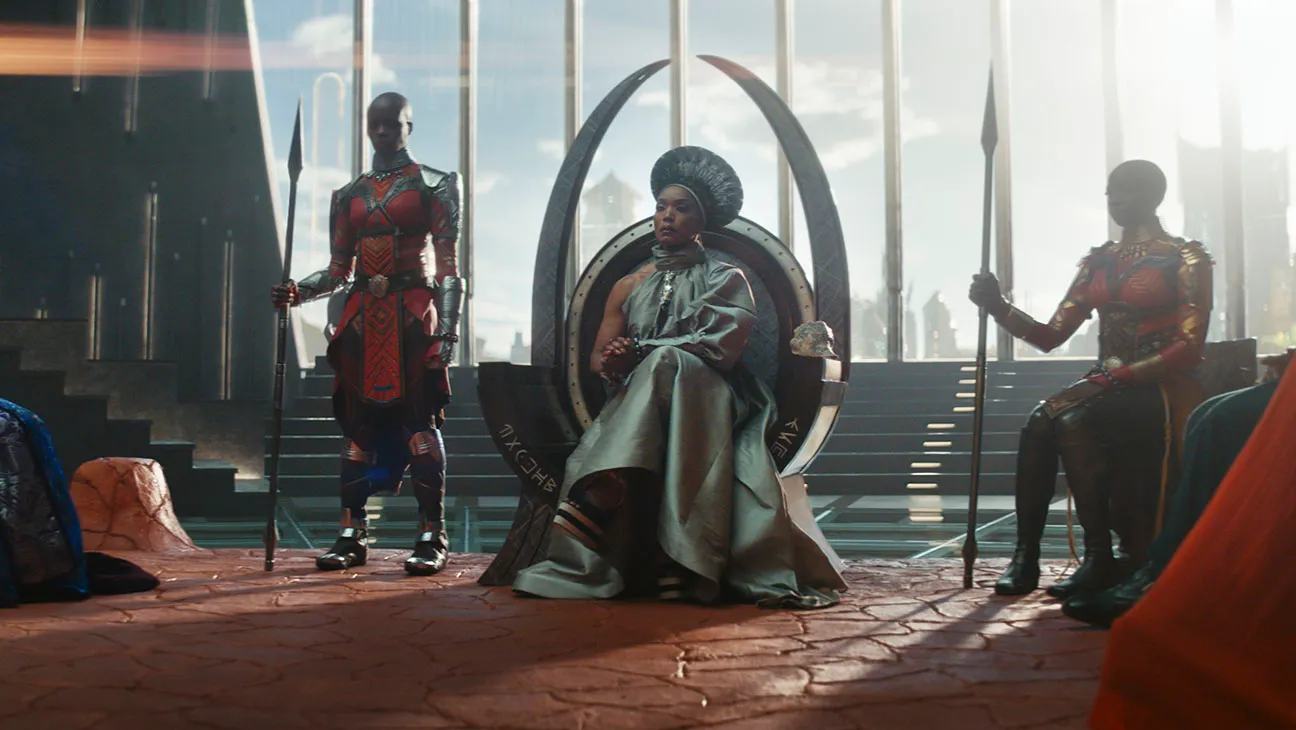Contents
- 1 Breaking stereotypes: How Black Panther challenges traditional superhero tropes
- 2 Celebrating African culture: The influence of Afrofuturism in Black Panther
- 3 The impact of representation: Why Black Panther resonates with audiences
- 4 Black Panther’s success at the box office and critical acclaim
- 5 The cultural impact of Black Panther: Inspiring diversity in Hollywood
- 6 Black Panther’s role in empowering marginalized communities
- 7 The legacy of Black Panther and its influence on future superhero films
- 8 Black Panther’s lasting impact on the superhero genre
- 9 Author
The superhero genre has long been a staple of popular culture, captivating audiences with its larger-than-life characters, epic battles, and stories of heroism. From the iconic Superman and Batman to the more recent rise of the Marvel Cinematic Universe, the superhero genre has evolved and adapted to the changing tides of societal trends and audience preferences. However, despite the genre’s enduring popularity, it has often been criticized for its lack of diversity and representation, with the majority of mainstream superhero narratives centering around white, male protagonists.
Enter Marvel’s Black Panther, a game-changing film that has not only shattered box office records but also redefined the superhero genre by placing African culture and identity at the forefront. Directed by Ryan Coogler, Black Panther’s release in 2018 marked a significant shift in the superhero landscape, offering a refreshing and culturally rich perspective that resonated with audiences around the globe.
The film’s success was not merely a result of its impressive visual effects and action sequences, but rather its ability to weave a compelling narrative that explored complex themes of identity, heritage, and the consequences of isolationism. By centering the story around the technologically advanced African nation of Wakanda and its enigmatic ruler, T’Challa, the Black Panther, the film challenged the traditional superhero tropes and paved the way for a more inclusive and representative future in the genre.
Breaking stereotypes: How Black Panther challenges traditional superhero tropes
One of the most notable ways in which Black Panther subverted the traditional superhero genre was its refusal to adhere to the dominant white, Western-centric narratives that had long dominated the genre. Instead, the film embraced and celebrated African culture, drawing inspiration from a rich tapestry of tribal aesthetics, mythologies, and sociopolitical dynamics.
From the vibrant and intricate costume designs, which paid homage to various African tribes, to the film’s exploration of Wakanda’s advanced technology and the complex power dynamics within the royal family, Black Panther challenged the stereotypical portrayals of Africa as a continent plagued by poverty, conflict, and underdevelopment.
Furthermore, the film’s diverse ensemble cast, led by the charismatic Chadwick Boseman as T’Challa, shattered the long-held assumption that superhero stories could not be successful without a white, male protagonist. The film’s supporting characters, such as the fierce warrior Okoye (played by Danai Gurira) and the brilliant scientist Shuri (played by Letitia Wright), further reinforced the notion that African characters could be complex, multidimensional, and integral to the narrative’s success.
By placing African culture and identity at the center of the story, Black Panther not only subverted the traditional superhero tropes but also opened up new avenues for storytelling that celebrated the richness and diversity of the African diaspora. This shift in perspective was not only groundbreaking but also served as a powerful statement about the importance of representation and the need for more diverse narratives within the superhero genre.
Celebrating African culture: The influence of Afrofuturism in Black Panther
One of the most striking aspects of Black Panther was its seamless integration of Afrofuturism, a cultural aesthetic and worldview that blends African culture, science fiction, and technology. The film’s depiction of Wakanda, a technologically advanced and isolated African nation, was a powerful manifestation of Afrofuturism, showcasing a vision of a prosperous and self-sufficient Africa that defied the Western-centric narratives of the continent.
The film’s production design, led by the acclaimed Hannah Beachler, was a masterclass in Afrofuturistic visual storytelling. From the sleek, futuristic architecture of Wakanda’s cities to the intricate tribal patterns and vibrant colors that adorned the characters’ costumes, the film’s aesthetic was a celebration of African heritage and a rejection of the dominant Eurocentric standards of beauty and design.
The film’s exploration of Wakanda’s technological prowess, including the advanced weaponry, transportation, and medical capabilities, further reinforced the notion of an Africa that had not been colonized or subjugated by Western powers. Instead, Wakanda represented a vision of an Africa that had thrived and evolved independently, harnessing the power of its natural resources and the ingenuity of its people to create a society that was both technologically advanced and deeply rooted in its cultural traditions.
The influence of Afrofuturism in Black Panther was not limited to the film’s visual aesthetics; it also permeated the narrative’s themes and character arcs. The film’s exploration of the consequences of Wakanda’s isolationism and the tensions between tradition and progress, as well as the complex power dynamics within the royal family, were all informed by the Afrofuturistic worldview.
By embracing Afrofuturism, Black Panther not only celebrated African culture but also challenged the dominant Western-centric narratives that had long dominated the superhero genre. The film’s success in this regard was a testament to the power of representation and the importance of amplifying diverse voices and perspectives within the entertainment industry.

The impact of representation: Why Black Panther resonates with audiences
The cultural impact of Black Panther cannot be overstated. The film’s release was a watershed moment for the superhero genre, as it shattered the long-held assumption that stories centered on non-white characters could not achieve mainstream success. The film’s overwhelming critical and commercial success, which included a staggering $1.3 billion at the global box office, was a clear indication of the audience’s hunger for more diverse and representative narratives.
Beyond its financial success, Black Panther resonated with audiences on a deeper, emotional level. The film’s ability to celebrate and empower African culture, while also addressing the complex issues of identity, heritage, and the legacy of colonialism, struck a chord with viewers around the world. For many, the film’s representation of strong, complex, and unapologetically Black characters was a long-overdue and much-needed antidote to the often one-dimensional or stereotypical portrayals of people of color in mainstream media.
The film’s impact was particularly profound within the Black community, where it was embraced as a symbol of cultural pride and empowerment. The sight of a technologically advanced, self-sufficient African nation, free from the shackles of colonial oppression, resonated deeply with audiences who had long been starved of such positive and uplifting representations of their heritage.
Moreover, the film’s success paved the way for a greater understanding and appreciation of the diversity within the African diaspora. By showcasing the rich cultural traditions, language, and sociopolitical dynamics of Wakanda, Black Panther challenged the often-monolithic perceptions of Africa and African identity, and encouraged viewers to engage with the nuances and complexities of the continent’s vast and varied cultures.
The impact of Black Panther’s representation extended beyond the film itself, as it inspired a renewed sense of pride and empowerment within marginalized communities. The film’s success demonstrated that there was a vast and untapped market for stories that centered on non-white characters, and that audiences were eager to embrace narratives that celebrated diversity and inclusion.
Black Panther’s success at the box office and critical acclaim
The overwhelming success of Black Panther at the box office and in the realm of critical acclaim was a clear testament to the film’s cultural and artistic significance. Upon its release in 2018, the film quickly shattered numerous box office records, becoming the highest-grossing solo superhero film of all time, the third-highest-grossing film in the Marvel Cinematic Universe, and the ninth-highest-grossing film globally.
The film’s commercial success was not only a reflection of its widespread appeal but also a validation of the audience’s hunger for diverse and culturally rich narratives. Black Panther’s ability to attract a global audience, with strong box office returns in both domestic and international markets, demonstrated that stories centered on non-white characters could not only be commercially viable but also resonate with audiences across cultural and geographic boundaries.
Beyond its financial success, Black Panther also received widespread critical acclaim, with many praising the film’s exceptional storytelling, visual artistry, and cultural significance. The film was nominated for six Academy Awards, including Best Picture, and won three, including Best Production Design, Best Costume Design, and Best Original Score.
The film’s recognition at the Oscars was particularly noteworthy, as it marked the first time a superhero film had been nominated for the prestigious Best Picture award. This achievement was a significant milestone, as it highlighted the film’s ability to transcend the traditional boundaries of the superhero genre and be recognized as a work of cinematic excellence.
The critical acclaim that Black Panther received further solidified its status as a groundbreaking and culturally significant work of art. The film’s ability to seamlessly blend action, drama, and social commentary, while also celebrating the richness of African culture, was widely praised by critics and audiences alike. The film’s success at the box office and in the realm of critical recognition demonstrated that stories driven by cultural authenticity and representation could not only captivate audiences but also achieve mainstream success.
The cultural impact of Black Panther: Inspiring diversity in Hollywood
The cultural impact of Black Panther extended far beyond the confines of the film itself, as it sparked a broader conversation about the importance of diversity and representation in the entertainment industry. The film’s success served as a powerful testament to the audience’s appetite for stories that reflected the diversity of the global population, and it inspired a renewed push for more inclusive and representative narratives in Hollywood.
In the wake of Black Panther’s release, there was a noticeable shift in the industry’s approach to diversity and representation. Filmmakers, producers, and studios began to recognize the commercial and critical value of stories that centered on marginalized communities, and they began to invest more resources in the development and production of such projects.
The impact of Black Panther was particularly evident in the increased visibility and opportunities afforded to Black creatives and storytellers. The film’s success demonstrated that there was a vast and untapped well of talent within the Black community, and it inspired a new generation of filmmakers, writers, and actors to pursue their dreams of creating culturally significant and commercially viable projects.
Moreover, the film’s success also had a ripple effect on the broader entertainment industry, inspiring greater diversity and representation across various mediums, from television and streaming platforms to the music industry and beyond. The success of Black Panther served as a powerful example of the audience’s appetite for diverse and inclusive narratives, and it encouraged industry leaders to rethink their approach to content creation and distribution.
The cultural impact of Black Panther was not limited to the entertainment industry, however. The film’s celebration of African culture and its empowerment of marginalized communities resonated with audiences around the world, inspiring a renewed sense of pride and belonging among people of color. The film’s success also sparked important conversations about the legacy of colonialism, the importance of self-determination, and the need for greater social and economic justice.

Black Panther’s role in empowering marginalized communities
Beyond its cultural and artistic significance, Black Panther’s impact on marginalized communities cannot be overstated. The film’s celebration of African culture and its empowerment of Black characters served as a powerful affirmation of the inherent worth and dignity of people of color, both within the context of the film’s narrative and in the real world.
For many viewers, the sight of a technologically advanced, self-sufficient African nation, free from the shackles of colonial oppression, was a revelation. The film’s depiction of Wakanda as a thriving, prosperous, and highly sophisticated society challenged the dominant narratives that often portrayed Africa as a continent plagued by poverty, conflict, and underdevelopment.
The film’s diverse ensemble cast, led by the charismatic Chadwick Boseman as T’Challa, further reinforced the notion that Black characters could be complex, multidimensional, and integral to the success of a major blockbuster film. The film’s supporting characters, such as the fierce warrior Okoye and the brilliant scientist Shuri, further expanded the representation of strong, capable, and unapologetically Black women on the big screen.
The film’s impact was particularly profound within the Black community, where it was embraced as a symbol of cultural pride and empowerment. The film’s celebration of African heritage, language, and traditions resonated deeply with viewers who had long been starved of such positive and uplifting representations of their identity.
Moreover, the danatoto success also had a tangible impact on marginalized communities beyond the film industry. The film’s ability to inspire a renewed sense of pride and belonging among people of color, and its role in sparking important conversations about the legacy of colonialism and the need for greater social and economic justice, demonstrated the power of representation and the transformative potential of storytelling.
The legacy of Black Panther and its influence on future superhero films
The legacy of Black Panther is undeniable, as the film has left an indelible mark on the superhero genre and the entertainment industry as a whole. The film’s success has paved the way for a more inclusive and representative future, inspiring a new generation of filmmakers, writers, and actors to create stories that celebrate the diversity and richness of the human experience.
Beyond its immediate impact, Black Panther’s legacy will continue to shape the superhero genre and the broader landscape of popular culture for years to come. The film’s ability to seamlessly blend action, drama, and social commentary, while also celebrating the richness of African culture, has set a new standard for what superhero films can achieve.
The film’s success has also demonstrated the commercial viability of stories centered on non-white characters, challenging the long-held assumptions that such narratives could not achieve mainstream success. This has opened the door for a more diverse array of superhero stories, with a growing number of films and television series featuring protagonists and supporting characters from a wide range of racial, ethnic, and cultural backgrounds.
Moreover, the legacy of Black Panther extends beyond the superhero genre, as it has inspired a broader conversation about the importance of representation and the need for more inclusive and diverse narratives in all forms of media. The film’s success has empowered marginalized communities, giving them a sense of pride and belonging, and has encouraged industry leaders to rethink their approach to content creation and distribution.
As the world eagerly awaits the highly anticipated sequel to Black Panther, it is clear that the film’s impact will continue to be felt for years to come. The legacy of Black Panther serves as a shining example of how cultural depth and authentic representation can elevate and revolutionize storytelling, inspiring a more inclusive and equitable future for the superhero genre and beyond.
Black Panther’s lasting impact on the superhero genre
In the pantheon of superhero films, Black Panther stands tall as a groundbreaking and culturally significant work of art. By placing African culture and identity at the center of its narrative, the film has not only revolutionized the superhero genre but also sparked a broader conversation about the importance of representation and the transformative power of storytelling.
The film’s success has demonstrated that stories driven by cultural authenticity and diverse perspectives can captivate audiences around the world, challenging the long-held assumptions that such narratives could not achieve mainstream success. Black Panther’s ability to seamlessly blend action, drama, and social commentary, while also celebrating the richness of African heritage, has set a new standard for what superhero films can achieve.
Beyond its immediate impact, the legacy of Black Panther will continue to shape the entertainment industry and the broader cultural landscape for years to come. The film’s empowerment of marginalized communities, its inspiration of a new generation of diverse storytellers, and its role in sparking important conversations about the legacy of colonialism and the need for greater social and economic justice, have all contributed to its enduring significance.
As the world eagerly awaits the highly anticipated sequel to Black Panther, it is clear that the film’s impact will only continue to grow and evolve. The legacy of Black Panther serves as a shining example of how cultural depth and authentic representation can elevate and revolutionize storytelling, inspiring a more inclusive and equitable future for the superhero genre and beyond.
Also read: São Joaquim: Experiencing Snow and Wine in Brazil’s Chilly Paradise





